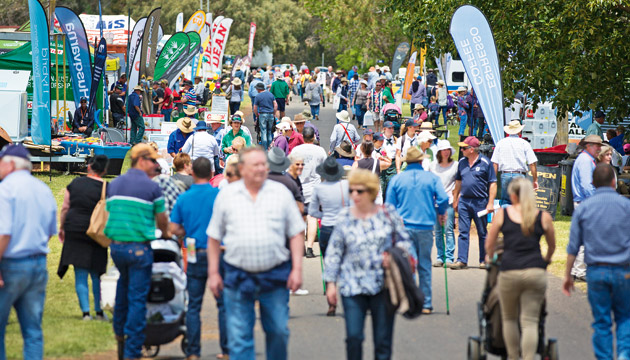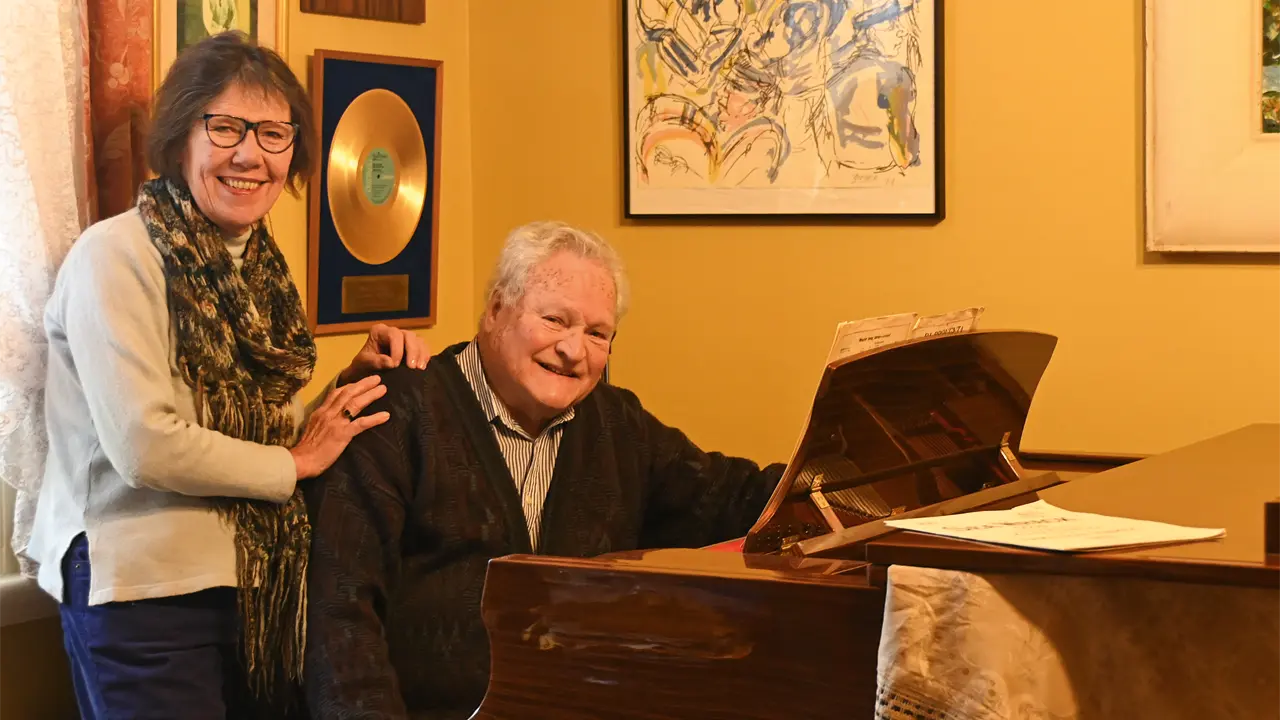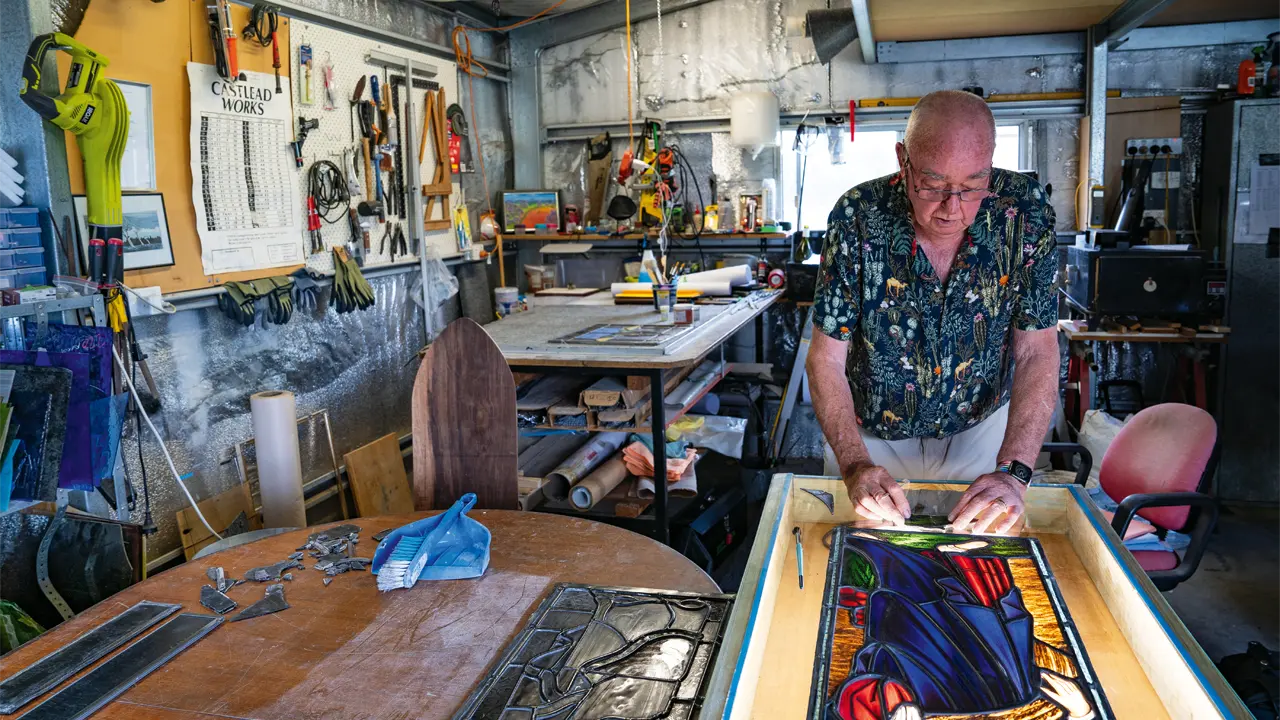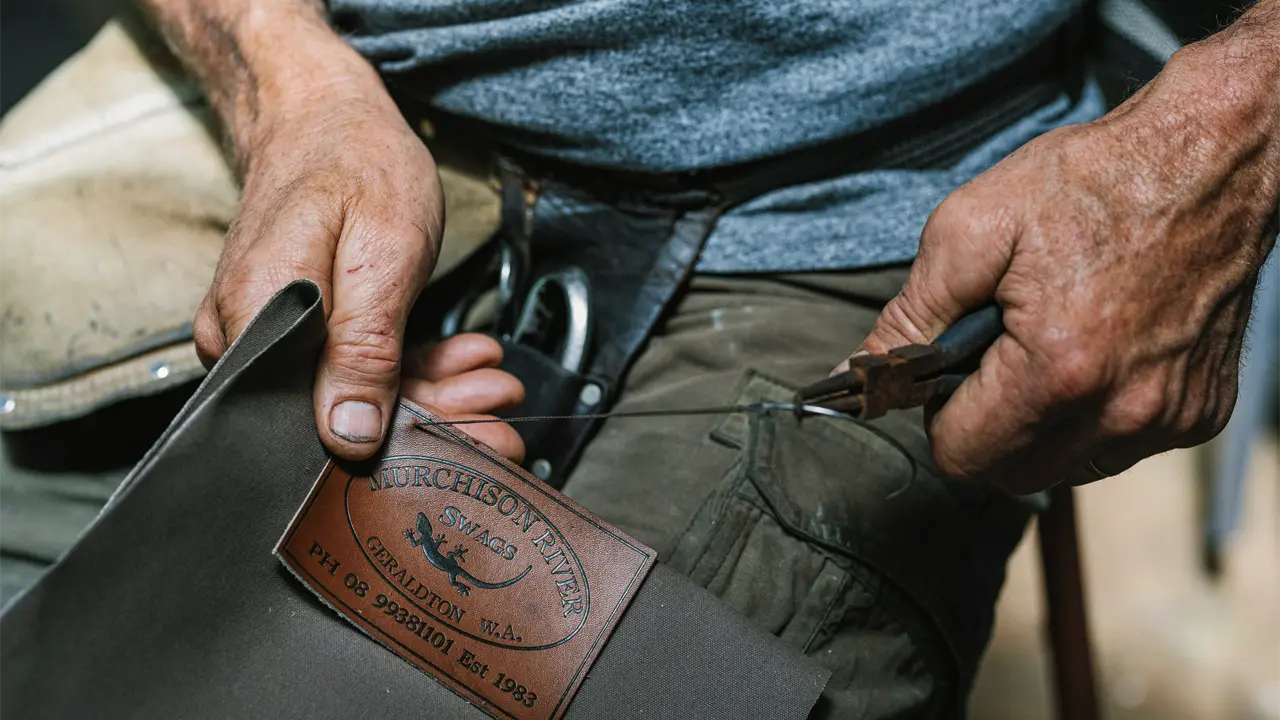From showcasing the latest agricultural technology to underpinning the survival of small towns, field days are a vital part of rural Australia.
Story + Photos Nathan Dyer
On a sunny spring day in Borenore, just west of Orange, NSW, people are pouring through the gates of the Australian National Field Days. Cattlemen wander about in big hats, there’s a line-up for rice-paper rolls at a Vietnamese food truck and a group of schoolgirls chat beside a row of tractors, carrying Akubra show bags. In the distance, the roar of a motorcycle stunt display blends with the thump of rotor blades from a helicopter taking scenic flights over the patchwork of surrounding farmland.
With a mix of entertainment and exhibitors covering everything from tractors to beekeeping, the Borenore event is a shining example of a modern Australian field day. Established in 1954, the event has been held at this permanent site for the past four decades. The organising committee includes full-time staff, as well as a backbone of dedicated volunteers, and the offering has broadened to include spin-off sheep and cattle events in addition to the annual all-encompassing field days. Next year, organisers plan to provide live web feeds of key talks for those who can’t attend.
Local farmer and committee member for 25 years, Chris Blunt, says the field days is a major social and business event for the community. “This field days has probably been the biggest attraction in the Orange region over the 60 years it’s been going, and it’s just great for the general community to have something like this to bring people together,” Chris says. “There’s so much development happening all the time in agriculture and there’s so much more to learn, and field days bring it all together in one spot.”
From Orange north to Barcaldine, Qld, south to Carrick, Tas, and across the Nullarbor to Dowerin, WA, field days are vital to the social and economic life of rural Australia. Not only do they allow farming communities to share experiences and propagate the latest in agricultural technology, they inject millions of dollars into local economies and provide crucial fundraising opportunities for thousands of volunteers, keeping many small-town organisations alive.
With strong commodity prices buoying Australia’s agricultural sectors, interest in field days is as strong as ever, according to mayor of Orange City Council Reg Kidd. “As Australians, our food and fibre production is our place in the sun,” he says, strolling among the machinery exhibitors at the Borenore event. “And there’s been this great movement in people wanting to know where their food comes from, so this is our time to shine.”
This story excerpt is from Issue #117
Outback Magazine: February/March 2018










